What to Do When an Earthquake Strikes While You're Abroad
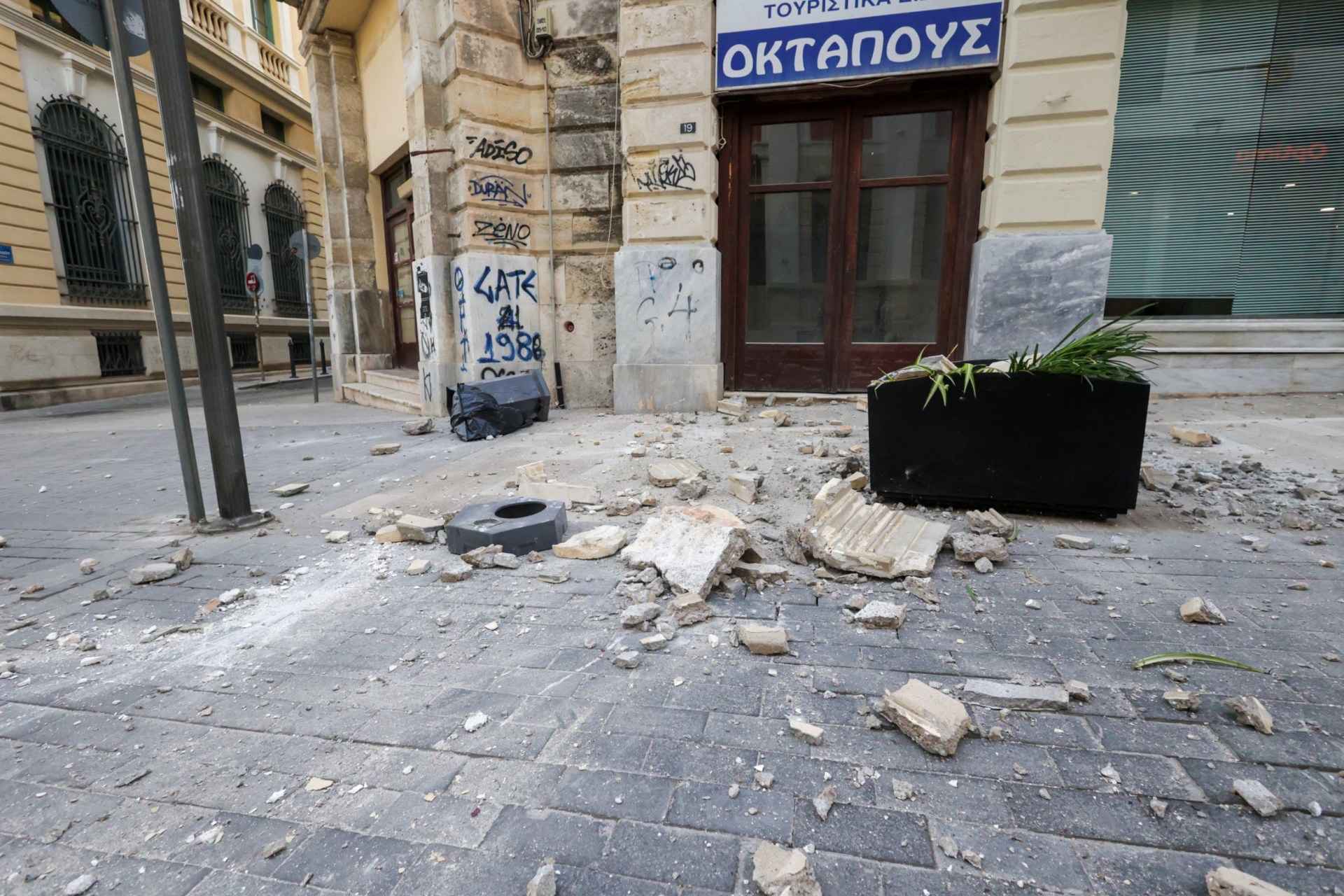
Holidays are meant to offer a chance for rest and relaxation; however, there’s always a possibility of encountering natural calamities when traveling overseas.
The degree of risk differs based on your destination, since certain nations have a greater chance of experiencing earthquakes, tsunamis, tornadoes, and floods compared to others.
Greece is among the areas with some of the highest seismic activity Europe owing to its position along the fault line where the Eurasian and African tectonic plates meet.
This indicates that you face a higher chance of encountering an earthquake when traveling to Greece and its islands than at other vacation spots.
At present, the nation is facing a tsunami alert following a 6.1 magnitude quake hit off the coast of Crete early this morning.
The Greek government has issued a national directive, ordering locals and tourists to ‘move away from the coast and reach a higher place’.
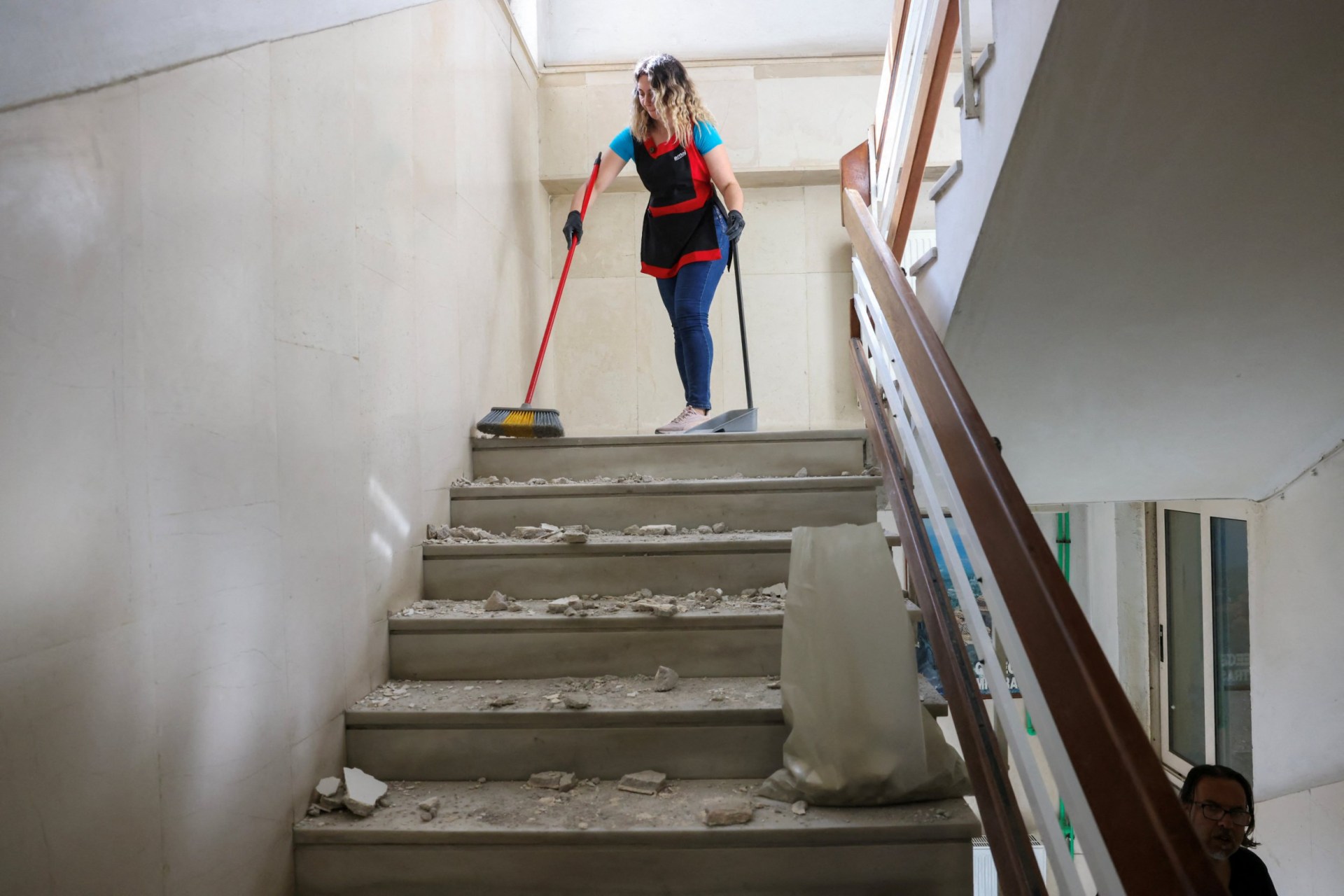
Last week a 5.9 magnitude earthquake was recorded off the coast , sparking another temporary tsunami warning and concerns that the islands of Crete and Rhodes might not be secure for tourism .
But what should you do if you experience an earthquake while you’re abroad? has the answers.
UK Foreign Office advice
The British Foreign Office has provided guidance for those from Britain intending to visit the Greek islands.
It has been reported that 'In early 2025, seismic activity intensified in the regions surrounding the Cycladic islands including Santorini (Thira), Anafi, Ios, and Amorgos.'
'This rise has now diminished, and the tourist season is anticipated to proceed normally.'
'There is a possibility of experiencing earthquakes and minor shakes in Greece.'
'In case of an earthquake, make sure you know the safety protocols, heed the guidance from local officials, and dial Greece’s emergency number 112 if you’re facing imminent peril.'

Typically, if you learn about an earthquake while overseas, the Foreign Office recommends taking these actions:
- Register to get email notifications whenever FCDO travel guidance gets updated.
- Stay connected with your travel or tour operator along with your accommodation (if relevant).
- Keep an eye on local radio, television, and newspapers.
- Follow the advice of local authorities, including any evacuation orders
- Be familiar with advice that is specific for hazards (such as ‘drop, cover, hold’ in an earthquake)
- Check in with family and friends in the UK
- Get ready to quickly head to a secure location if needed — have all crucial items and supplies like travel papers and vital medications gathered in one spot.
Emergency alert services
Many nations provide an emergency alert system aimed at informing individuals about potential significant events or natural occurrences such as earthquakes.
The Greek government operates an Emergency Communication Service capable of issuing alerts in English.
To register for these notifications, the Foreign Office has provided the following guidelines:
- To activate Emergency Alerts for your iPhone, navigate to Settings > Notifications and turn on the 'Emergency Alerts' option located at the bottom.
- For Android 11 and above, navigate to Settings > Notifications > Advanced Settings > Wireless Emergency Alerts.
- For Samsung gadgets head over to Settings > Apps > Messages > Notifications > Emergency Notifications and switch on the 'Emergency Alerts' feature.
Travel insurance advice
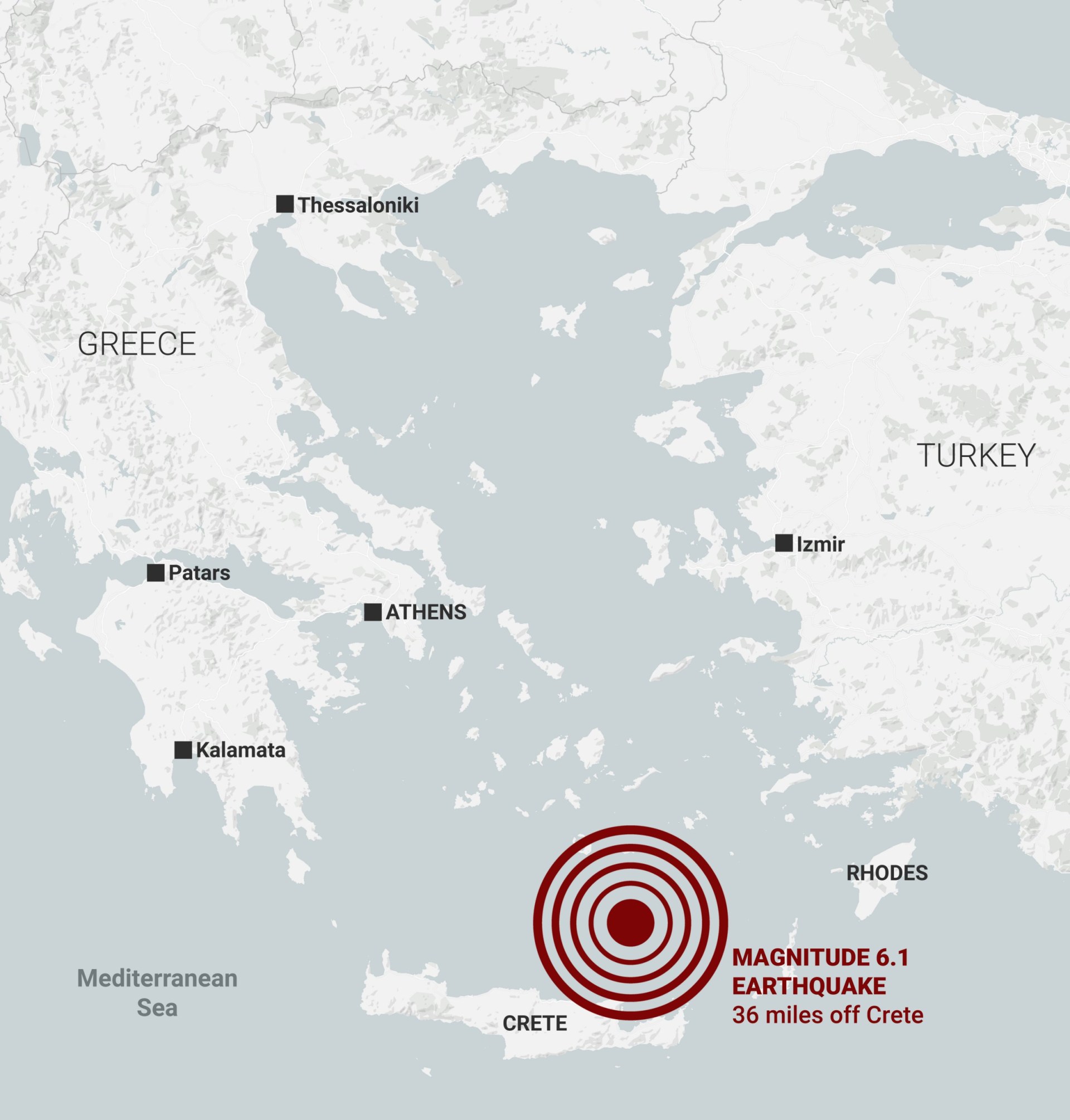
Experts at Avanti travel insurance told mentioned that if your travel might be impacted by a natural disaster, there are measures you can take such as altering your itinerary or obtaining a refund.
They said: ‘The first thing you should do is contact your holiday provider to see what support they can give you as they may be able to provide an alternative, refund or reschedule your trip.
‘If your holiday provider can’t help you reschedule or refund your costs, you should contact your bank. You may be able to recoup your costs through a “chargeback claim” if you paid using a credit card.
‘If you’ve tried both options without any luck, then you may be able to claim through your holiday insurance. It’s important to check your policy documents before cancelling a trip or if you decide not to travel so check out the “Travel Delay” section in your policy wording to find out if a natural disaster is covered.
'If you're already on vacation and your trip back to the UK is postponed or canceled, talk to your travel company about different choices.'
'In this case, your travel insurance policy ought to automatically expand coverage for additional time needed to return home. Nonetheless, it’s best to verify with your insurance provider as well.'
'Additionally, you should talk to your holiday service provider if your lodging is impacted because they might help you secure another place to stay or, when needed, arrange for you to return home sooner.'
'Finally, if your travel plans change, make sure to update your travel insurance policy. Keep in mind that going against FCDO recommendations might void your coverage, so stay current with the newest updates on their website.'
Meanwhile, Alice Lawson, who serves as the associate director of insurance at Holiday Extras, commented While travel insurance typically doesn't include coverage for natural disasters as part of the basic plan, certain insurers do provide this protection when added as an additional option.
She stated: "When traveling to locations where natural calamities might occur, ensure you thoroughly review the specifics of your chosen travel insurance policy prior to making a purchase."
If a natural disaster occurs at your destination and trips are deemed safe to proceed, insurance won't provide coverage; however, if you choose not to travel despite your vacation continuing as scheduled due to potential risks of a natural disaster, insurers typically wouldn't compensate you for cancelling your trip.
‘In the unlikely event that your provider can’t fulfil their duty you may be able to claim against your insurance – in most overseas emergencies in the past either the airline, holiday provider, or in extreme cases the UK government have stepped in to get people home.’
Preparing for the earthquake

The Greek Ministry for Climate Crisis and Civil Protection has shared advice on what to do if you experience an earthquake while in Greece.
If you have been alerted that an earthquake is likely, they suggest you prepare by fastening shelves and heavy furniture to the walls and moving tall furniture which could fall and block exit doors.
Heavy items should be placed on lower shelves and removed from above beds and sofas.
You ought to identify secure areas in every room of your home, situated far from outside walls and windows, preferably under strong tables or desks.
You ought to be familiar with switching off the power, water, and gas supplies, as well as knowing Greece’s emergency contact number, which is 112.
Preferably, you should also possess a portable radio along with some batteries, a flashlight, and a first aid kit.
A further issue related to earthquakes is restricted internet accessibility, as seismic activity might disrupt power supply and information technology infrastructure.
Simon Phillips from No1 Currency cautions that this might render it impossible to use debit or credit cards for payments.
He told ‘Many of us consider chip and contactless payments as commonplace, and they're fantastic – until they suddenly stop functioning.’
In April, widespread electricity disruptions in Spain and Portugal transformed countless individuals' smartphones into costly paperweights and forced them to rely solely on cash for transactions.
'Having some cash in your purse or wallet while abroad is wise. It's simple to use, comes with no extra fees, and you can count on it if electronic transactions fail.'
'Cards and contactless payments are convenient, efficient, and secure. However, they depend on technology that can be unreliable. That’s why it’s wise to always have some cash available as a backup, particularly in Britain and especially so when traveling overseas.'
During an earthquake
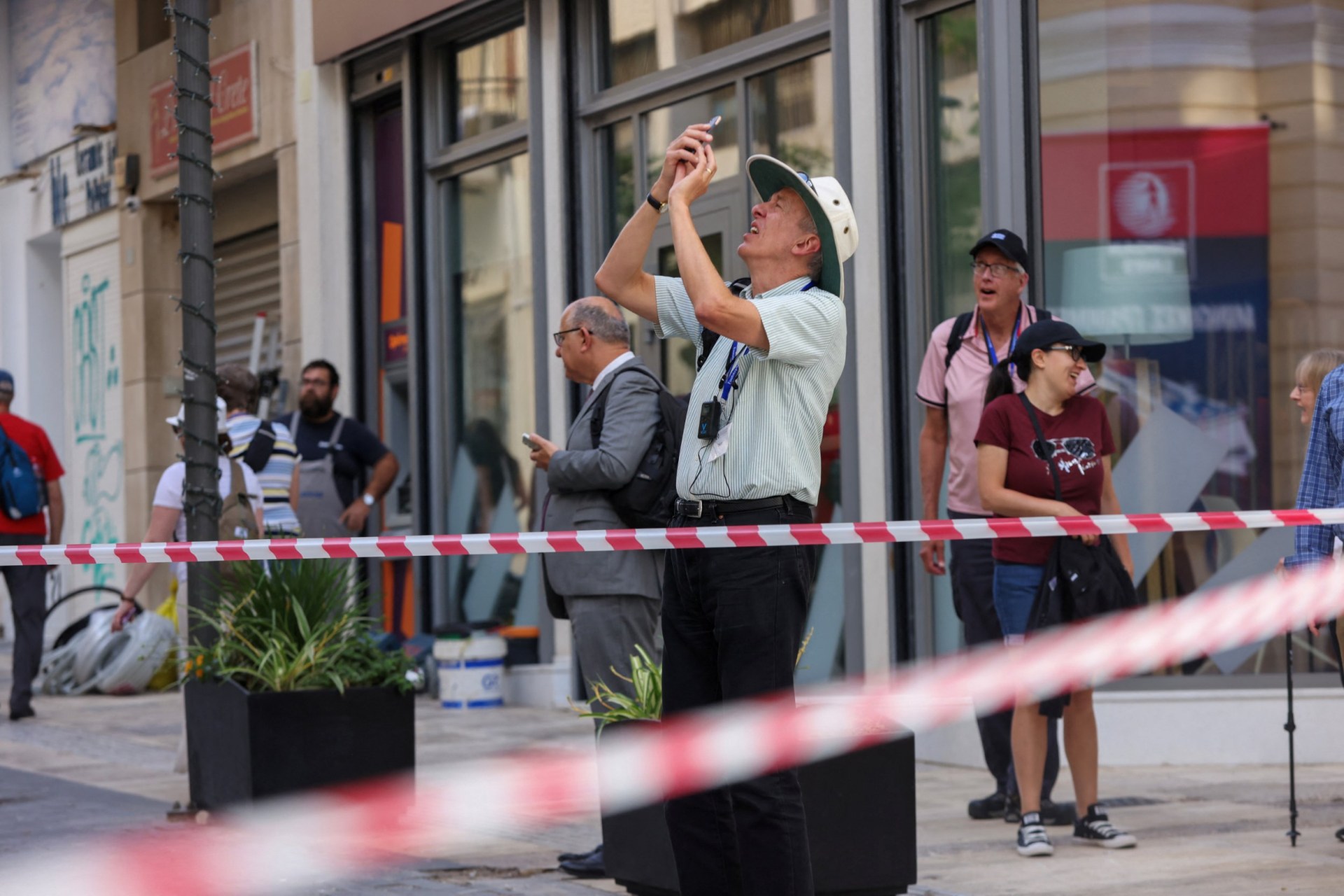
During an earthquake, the first piece of advice is to stay calm.
You should take cover under sturdy furniture and hold its leg, but if there isn’t any suitable furniture, lower your height as much as possible and protect your head and nape with your hands.
Move away from large glass surfaces, furniture or objects that could injure you. Don’t try to leave the house or go onto a balcony.
If you’re in a tall building, stay away from glass and interior walls.
If you're inside a public structure such as a mall during an earthquake, remain indoors until the shaking ceases and keep clear of any chaotic groups to avoid the danger of being trampled.
If you're outside, get away from structures and electrical or telephone lines, and protect your head with a bag if one is handy.
If driving, pull over into an open area clear of tunnels and bridges, ensuring you're not blocking traffic.
After an earthquake
After the earthquake stops, keep in mind that there might be additional aftershocks.
See if anybody nearby has been hurt, and avoid moving anyone who is severely injured.
Exit the structure you're inside through the stairwell, avoiding the elevator, once you've turned off the power, gas, and water supplies, then proceed to an unenclosed area outside.
Avoid driving except during emergencies so you can leave the roads open for essential responders. Also, refrain from using your phone regularly to prevent overloading networks.
In the event of a tsunami
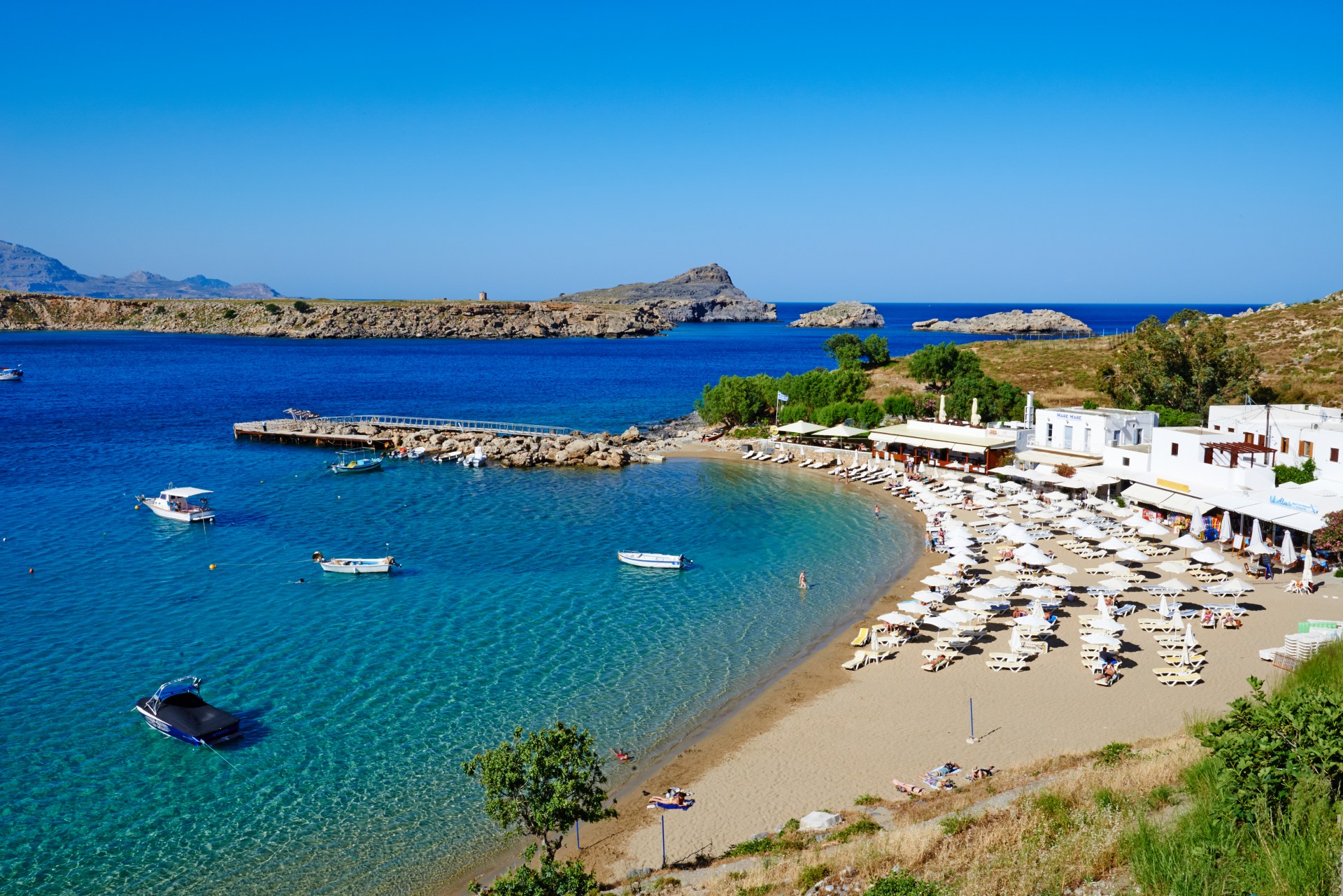
While not every earthquake triggers a tsunami, when you're near the coast, it’s advisable to look out for unusual changes in sea levels—such as sudden drops or surges—which could signal an approaching tsunami.
You ought to vacate the coastal region and make your way to elevated zones, and avoid beachfront locations till officials declare that the risk has passed.
The Civil Protection Ministry warns: ‘Do not approach the shore in order to watch a tsunami coming. When you see the tsunami coming, it will probably be too late to avoid it.’
Seismic activity in Greece
Greece has seen an increased amount of seismic activity in the last 24 hours.
The institute’s geodynamic center has documented approximately 409 seismic events over the past week, including more than 120 occurrences within the last day.
Although several were concentrated near the site of the 6.1 magnitude earthquake, many others have been recorded in the waters surrounding the islands of Fira and Amorgos, along with areas around the Greek mainland.
Since the 6.1 magnitude earthquake, 37 tremors have been documented, with their magnitudes ranging from 1.3 to 3.5.
Contact our news team by sending an email to webnews@.co.uk .
To find similar tales, check our news page .
Keep abreast of all the tales making waves by subscribing to 's News Updates newsletter.
Post a Comment for "What to Do When an Earthquake Strikes While You're Abroad"